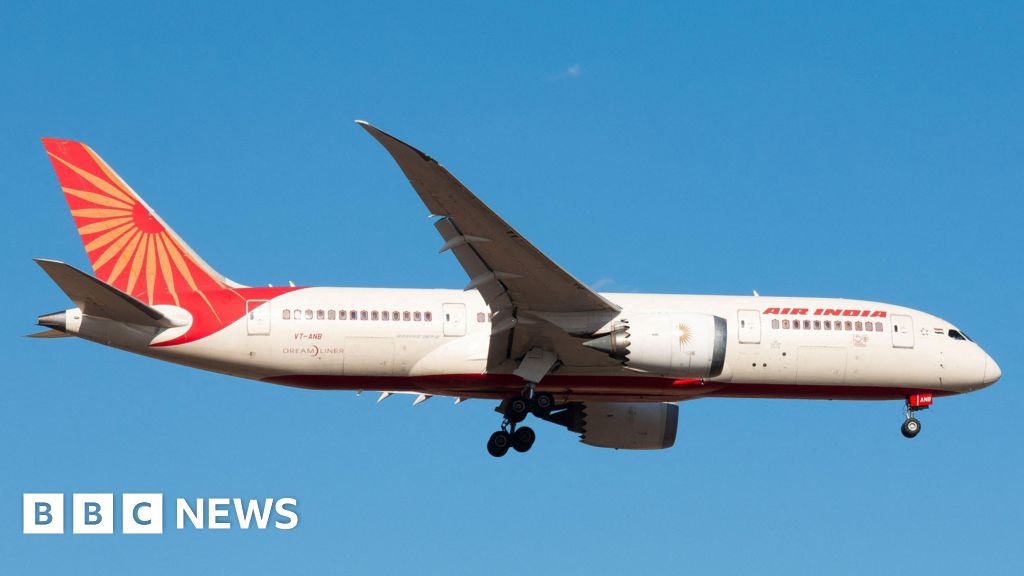ARTICLE AD BOX
James Waterhouse
Ukraine correspondent
Ukrainian President Volodymyr Zelensky needs to return to the negotiating table and strike a deal on US access to Ukraine's critical minerals, White House national security adviser Mike Waltz has said.
On Wednesday, Zelensky rejected US demands for a share of its rare earth minerals - a "deal" Trump said would reflect the amount of aid the US had provided to Ukraine during its war with Russia.
The comments, made at a White House briefing on Thursday, overshadowed a meeting in Kyiv between Zelensky and Keith Kellogg, the US chief envoy to Ukraine.
Waltz said the White House was "frustrated" with Zelensky after he levelled "unacceptable" insults at US President Donald Trump earlier this week.
Ukraine holds huge deposits of critical elements and minerals, including lithium and titanium, as well as sizeable coal, gas, oil and uranium deposits - a supply worth billions of dollars.
Earlier on Thursday, Waltz suggested US access to rare minerals in Ukraine could be exchanged in return for aid - or even as compensation for the support the US has already provided.
"We presented the Ukrainians really an incredible, and a historic opportunity," the adviser said, adding that it would be "sustainable" and "the best" security guarantee Ukraine could hope for.
But Zelensky had refused the offer, saying: "I can't sell our state."
Waltz's comments in the White House news briefing came shortly after the conclusion of Zelensky's meeting with Kellogg in Kyiv, after which the Ukrainian leader announced he was ready to make an "investment and security agreement" with the US to end the war in Ukraine.
The meeting was hailed as "productive" by Zelensky - but it more closely resembled an awkward political date.
As the senior members of Donald Trump's team continued to engage directly with Moscow, the retired general had said he was in Kyiv to "listen".
But it soon became apparent he wouldn't speak, publicly that is, after a news conference was cancelled at the last minute.
The BBC understands it was a US decision, with Ukrainian sources claiming they believed Kellogg had been "sidelined" by the White House.
The meeting with Kellogg had been of huge importance to Kyiv, given that officials are relying on the special envoy to relay its needs to Washington.
In a post shared on X, the Ukrainian president said he and the US special envoy had "a detailed conversation about the battlefield situation, how to return our prisoners of war, and effective security guarantees".
He added: "Ukraine is ready for a strong, effective investment and security agreement with the president of the United States."
However, the possible reasons for Mr Kellogg not wanting to face questions are mounting.
Kellogg's meeting comes in the context of a war of words between his boss Donald Trump and Ukraine's leader, which culminated in the US president referring to Zelensky as a "dictator without elections".
Trump also blamed him for starting Russia's invasion.
Now there are reports that the US is refusing to recognise a UN resolution which labels Moscow as the aggressor while recognising Ukraine's territorial integrity.
Earlier this week, Zelensky was excluded from talks between senior Russian and American officials who met in Saudi Arabia to discuss the possibility of ending the conflict.
The war began when Russia launched a full-scale invasion of Ukraine three years ago, following its earlier annexation of Ukrainian territory.
Trump, who has been in office for one month, believes US involvement in the war is not in America's interest - and in a radical reversal of previous US foreign policy, he has chosen to negotiate directly with Russia to secure a quick end to the conflict.
On Tuesday, US Secretary of State Marco Rubio emerged after more than four hours of talks with Russian diplomats in Riyadh to declare that the first steps towards negotiations had been agreed, with teams to be formed on both sides.
After the meeting in the Middle East, Trump suggested Zelensky had "started" the war with Russia - claims which led Zelensky to describe the US president as "living in this disinformation space" governed by Moscow.
Trump hit back with his "dictator" attack and claimed Zelensky had low popularity ratings among the Ukrainian electorate.
Looking forward, Ukraine will be concerned by the prospect of Russia-US talks continuing without the direct involvement of Ukraine.
"Nothing is off the negotiating table," claimed US Vice-President JD Vance.
The problem for Ukraine is that it isn't even sitting at it.

 3 months ago
25
3 months ago
25








 English (US) ·
English (US) ·